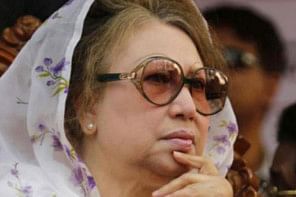Tribute To Prof Saleemul Huq: A towering scholar of exceptional brilliance

The fact that he was one of the leading global experts on climate change and an integral part of nearly every international and regional group of any worth anywhere is something one would never know by talking to him. He was as modest as he was brilliant. He was extremely self-effacing and shy to the extent of being, some would say, quite humdrum. But once he could be induced to talk - and he would carefully choose who he would open up to - the listener would immediately be mesmerised by the depth of his knowledge and the creativity of his ideas regarding this highly complex and multi-faceted problem that humanity is facing.
Being recognised and honoured as a global climate change expert was far more challenging than a similar recognition in a comparable discipline. There were thousands of scholars and researchers, from every nook and cranny of the world, with backing from institutions of international repute, not to mention substantial budget support and global connection who competed for the distinction that Prof Saleemul was able to earn. His own brilliance and capacity for hard work placed him, in 2019, among the 20 influencers on global climate change. In 2022, the influential international science journal, Nature, named him as one of the 10 top scientists of the year. In 2023, he was appointed adviser by the UN to the Scientific Advisory Board for Advice on Breakthroughs in Science and Technology.
His role within the UN system, especially in giving an edge to the developing countries demands, was salutary. He had two-pronged task – on the one hand to convince the developing countries to take the climate crisis seriously and on the other, to persuade the developed world to listen to the voices of the suffering countries, victimised for no fault of their own as their carbon emission was almost nothing compared to the developed world.
He worked tirelessly to convince the developing countries' leaders to build their own scientific expertise to face the challenges emanating from the changing weather patterns. One of his constant message was that the crisis though very challenging, was manageable, that they should not get overwhelmed by it, that there was enough scientific knowledge available within their own countries to tackle the issue. All they needed to do was to come together, exchange knowledge and make whatever investment they could for this purpose. Cooperation was the only way forward, he would say.
To the developed countries, he would never tire of stating, that it was the industrialised world that was largely responsible for the carbon emission that caused the climate crisis and bore the maximum responsibility and as such should fund the mitigation and adaptation efforts. He pleaded for more resources for the disadvantaged.
He was the lead author of the third, fourth and fifth assessment reports of the Intergovernmental Panel on Climate Change(IPCC) which was awarded the Nobel Prize for its work in 2007. He worked as an advisor to the UN's LDC Group and was the co-chair of the UN Food system summit, Action Track 5 that focused on resilience building for vulnerable countries.
His service to Bangladesh was unmatched. He worked with the government and advised them on every aspect of the climate change struggle – from the forest preservation, to the protection of the coastal areas and the highly riverine zones to the highest level of policy formulations. His was a constant presence. Prof Saleem's work in climate adaptation were creative, based on locally available resources, cost effective and most importantly sustainable. He advised almost all delegations of Bangladesh to every major world and regional conference and worked tirelessly to sharpen and strengthen our arguments in global fora. He understood the complexity of challenges that lay ahead for Bangladesh and would be deeply hurt at the corruption in many projects that became exposed from time to time.
For us he was one of our most valued columnists for the climate crisis for many years. Through his column he tried to create the much needed public awareness and also reach the politicians, parliamentarians, academics, bureaucrats, etc. whose collective efforts were needed to take the urgent actions we needed to take.
With his passing the UN system lost one of its most insightful experts, the world a passionate fighter for its survival, the developing world an effective advocate for its cause and Bangladesh a patriotic voice who loved his country, felt enormously for the downtrodden people and was its most effective fighter at the global level.
May his soul rest in peace.


 For all latest news, follow The Daily Star's Google News channel.
For all latest news, follow The Daily Star's Google News channel. 







Comments